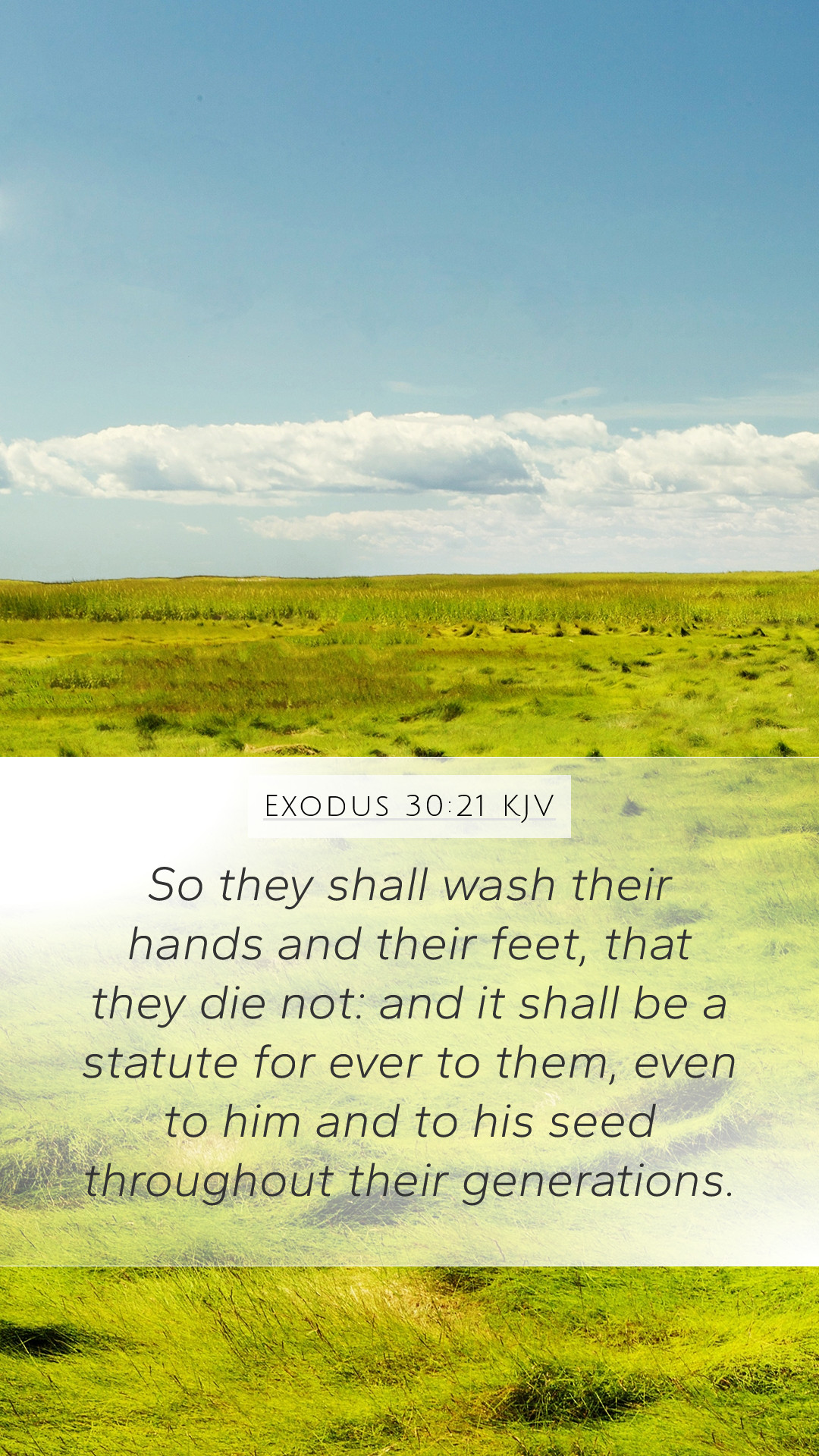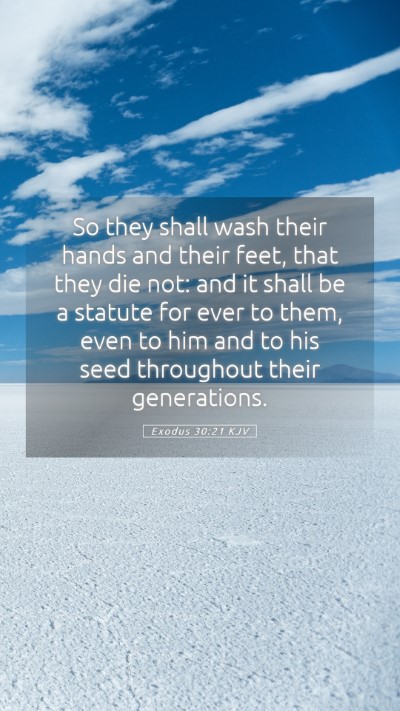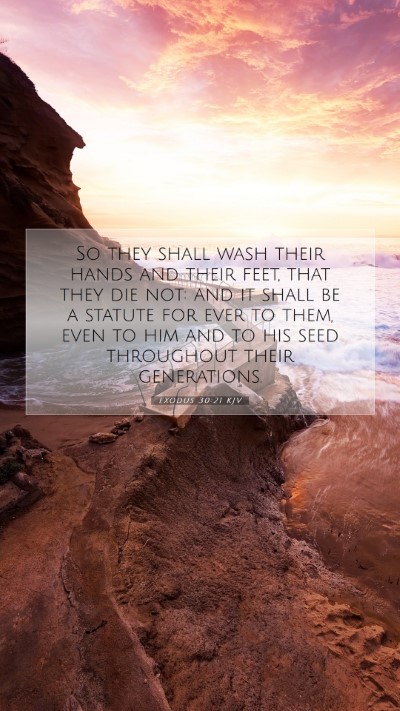Exodus 30:21 - Bible Verse Meaning
Verse Text: "So they shall wash their hands and their feet, that they die not: and it shall be a statute forever to them, even to him and to his seed throughout their generations." (Exodus 30:21)
Overview of Exodus 30:21
Exodus 30:21 emphasizes the necessity of purity and ceremonial cleanliness among the priests before they approach the altar of God. This command signifies not only physical cleanliness but also the importance of spiritual readiness in approaching God.
Commentary Insights on Exodus 30:21
-
Matthew Henry's Commentary:
Matthew Henry points out that this command underscores the importance of outward cleanliness as reflective of internal moral purity. The act of washing symbolizes the necessity for the priests to be free from all worldly contaminations before performing their sacred duties.
-
Albert Barnes' Notes:
Albert Barnes emphasizes that the washing of hands and feet serves as a practical illustration of the need for spiritual preparation. The washing is prescribed to prevent the priests from facing divine judgment for approaching God's presence carelessly.
-
Adam Clarke's Commentary:
Adam Clarke elaborates on the significance of the phrase "that they die not," highlighting the strict consequences associated with neglecting this command. Clarke draws attention to the seriousness of coming into God's presence without appropriate moral and spiritual preparation.
Understanding the Elements of the Verse
This verse requires a multi-faceted approach to uncover its full significance, linking it to broader themes of holiness, obedience, and worship.
1. The Act of Washing
The prescribed washing of hands and feet involves more than mere hygiene. It points to a deeper spiritual principle: the need to cleanse one's heart and actions in preparation for entering into God’s holy presence.
2. Symbolism of Life and Death
The stern warning "that they die not" indicates the grave nature of violating God's laws. This reflects the serious nature of divine holiness which cannot tolerate sin or impurity, reinforcing the need for careful observance of His commands.
3. Statute Forever
The phrase "it shall be a statute forever" signifies that this instruction is not just a temporary measure but an enduring principle for future generations, establishing an important precedent in the priestly duties.
Practical Applications
The lessons drawn from Exodus 30:21 extend beyond ancient Israel’s ceremonial laws and have deep implications for contemporary believers:
- Importance of Spiritual Cleanliness: Just as the priests were instructed to wash their hands and feet, modern believers are reminded to maintain spiritual cleanliness through confession, repentance, and commitment to godliness.
- Preparation for Worship: Individuals are encouraged to prepare their hearts and minds before approaching God in worship and prayer, recognizing the holiness of God.
- Ongoing Commitment: The everlasting nature of this statute implies that believers should have an ongoing commitment to holiness and obedience throughout their lives.
Cross References
- Exodus 29:4: The washing of Aaron and his sons signifies the necessity of purification for the priestly role.
- Leviticus 15:31: The importance of maintaining ceremonial purity among the people of Israel.
- Psalms 24:3-4: Asks who may ascend the hill of the Lord and emphasizes clean hands and a pure heart.
Conclusion
Exodus 30:21 serves as a profound reminder of God's call for holiness and the seriousness with which we must approach Him. By understanding the significance of this verse, individuals can gain deeper Bible study insights and apply these lessons to their daily lives.
As we engage in Bible study, examining passages like Exodus 30:21 through various Bible study resources and commentaries can enhance our understanding of Scripture and encourage a lifestyle that reflects God's holiness.


